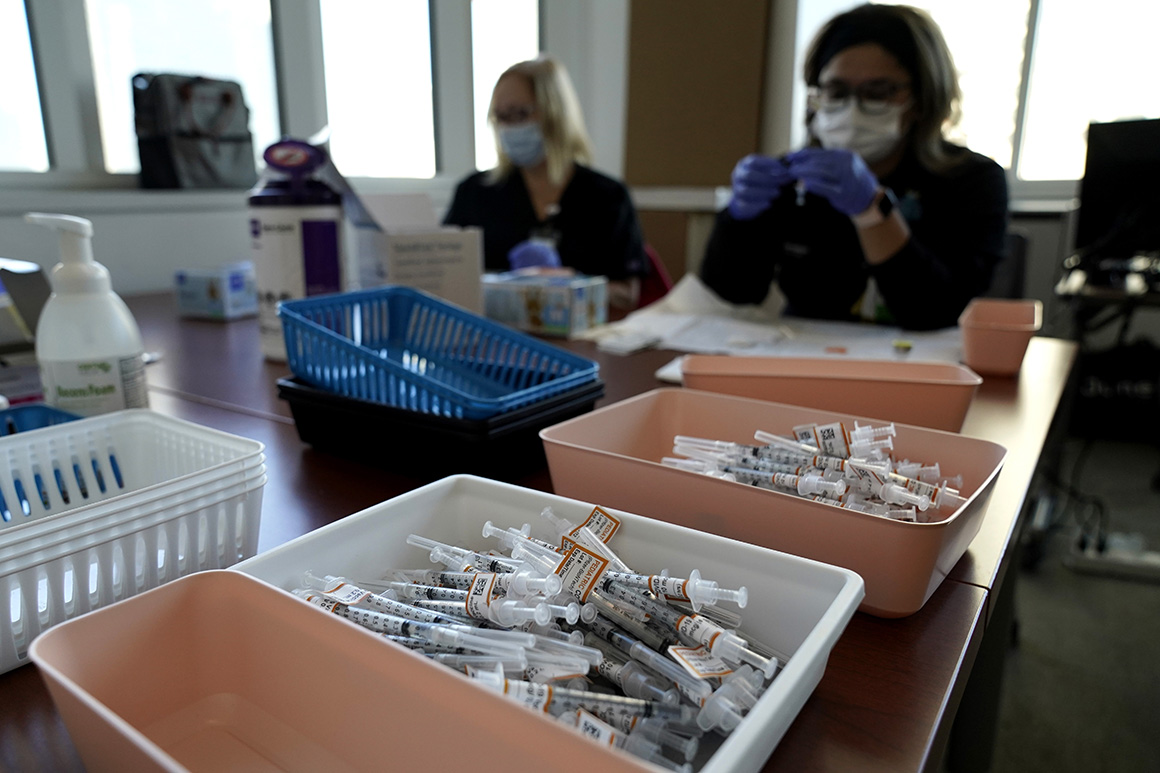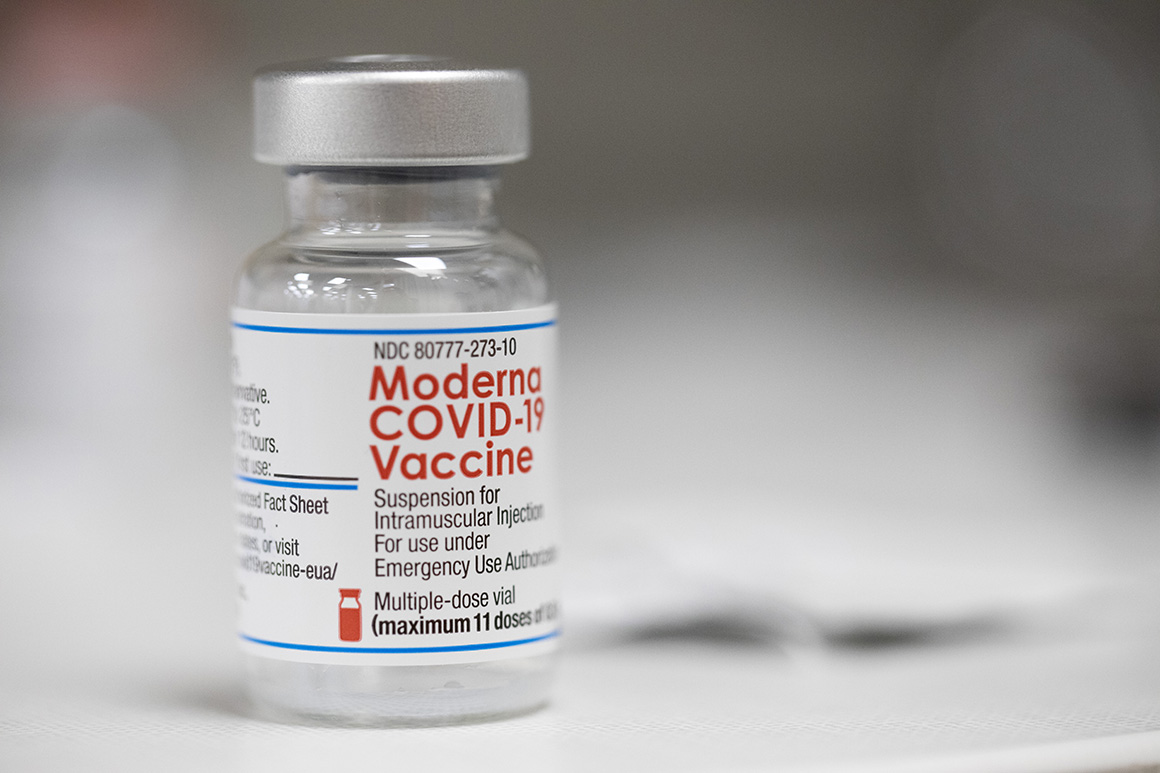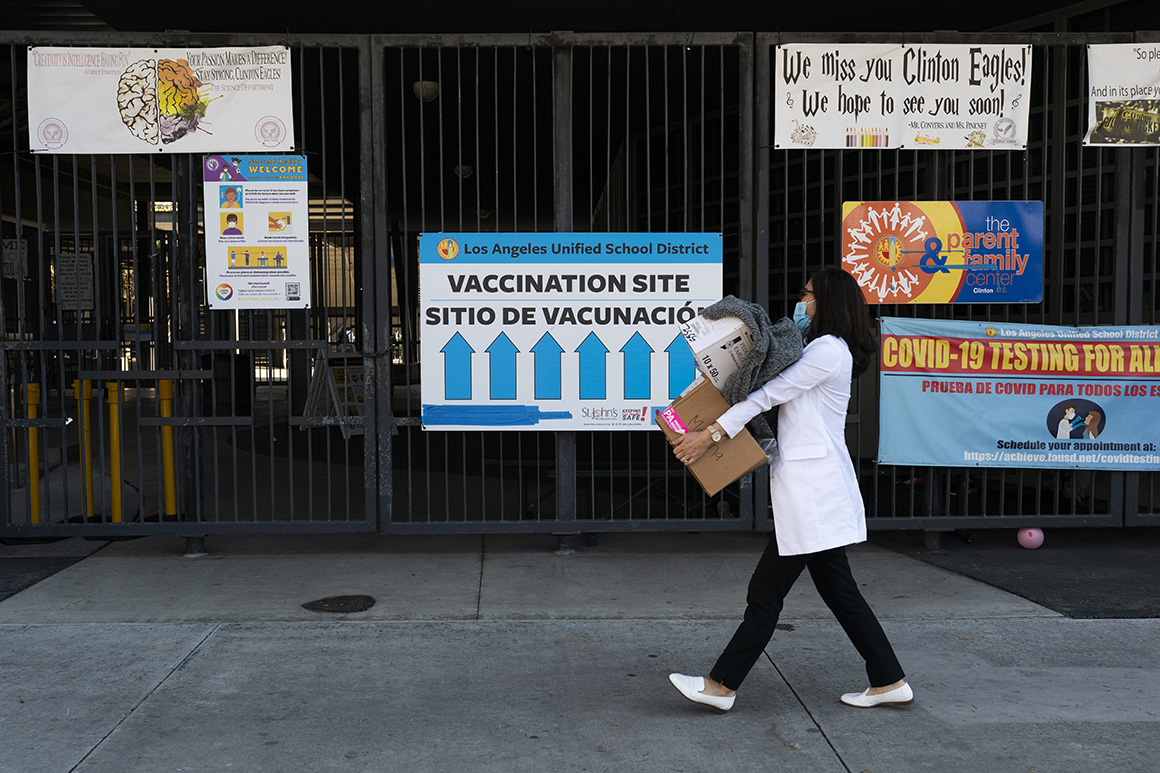
Moderna says it has gathered enough data in support of its Covid-19 vaccine for the youngest children. But it may not be enough for regulators to greenlight the shot for kids.
Public health officials, pediatricians and infectious disease experts are split over whether the company’s trial results are sufficient for the Food and Drug Administration and its independent advisers, or whether they will want to see data on a third dose as they did with Pfizer and BioNTech’s vaccine for children under 5.
This uncertainty comes as Covid cases remain high in Europe and China thanks to BA.2, a rapidly spreading subvariant of Omicron that now makes up nearly 55 percent of all cases in the U.S. While U.S. cases and hospitalizations are at eight-month lows, many fear that infections will soon spike, adding fresh urgency to authorizing a shot for the roughly 19 million children younger than 5 in the U.S. for whom there is no vaccination currently available.

Children under 5 make up about 3 percent of U.S. Covid cases and 0.1 percent of deaths, according to data from the Centers for Disease Control and Prevention, but during Omicron this age group was more likely to be hospitalized than older kids.
Moderna, which has not submitted its results to the FDA or other scientists for review, said last week that two shots of Covid vaccine reduced cases of symptomatic disease by 43.7 percent among children 6 months to 2 years old and by 35.7 percent in children 2 to 6. That’s below the 50 percent threshold the FDA set for adults, but Moderna officials said the regimen met a metric called immunobridging, meaning the pediatric doses produced the same immune response that’s been seen in young adults.
That signals that the shot is appropriate for kids, said Diego Hijano, an assistant faculty member in the infectious disease department at St. Jude Children's Research Hospital.
“It really has good immunogenicity data and good data on protecting against symptomatic disease,” he said. That the vaccine offers some protection against mild and moderate disease indicates that it will likely have higher protection against severe disease, he added. No kids in the trial needed to be hospitalized.
But others argue that at this stage in the pandemic, immunogenicity alone might not be enough because it doesn’t guarantee better protection. The FDA might need to raise its bar and demand a higher standard, said Peter Hotez, a professor of pediatrics and molecular virology & microbiology at the Baylor College of Medicine.
“Given the other data that surrounds it, I don't know that it's a slam dunk that the FDA will move forward in terms of releasing it for emergency use,” he said. “We're still learning about the relationship between virus neutralizing antibodies and effectiveness.”
The FDA wouldn’t comment on Moderna’s submission because it’s pending evaluation. “Our approach has always been to conduct a regulatory review that’s responsive to the urgent public health needs created by the pandemic, while adhering to our rigorous standards for safety and effectiveness,” said a spokesperson for the agency.
The FDA said it would schedule an advisory committee meeting when Moderna completes its application for a Covid vaccine for the youngest children. Last month, the FDA scheduled a meeting within hours of Pfizer and BioNTech announcing they would seek authorization for their two-dose regimen, only to later postpone the meeting. Though the agency declined to explain its decision, regulators suggested the two-dose data was insufficient to consider authorization.
But Moderna’s trial results, according to its press release, showed something that Pfizer and BioNTech did not. The pharmaceutical company said that its 25 microgram dose — about a quarter of what is given to adults — produced an immune response in all children 6 years old and younger that was similar to what was seen in adults ages 18 to 25.
Pfizer’s clinical trial data showed the vaccine generated an immune response in children 6 to 24 months old comparable to young adults, but not for those between 2 and under 5 years old.
“We believe these latest results from the KidCOVE study are good news for parents of children under 6 years of age,” Moderna CEO Stéphane Bancel said in a statement.

And most public health experts agree that the efficacy rates touted when vaccines were first introduced in 2020 are unlikely to be replicated against variants such as Omicron. That might lead regulators to overlook the seemingly low protection the vaccine provided against infection.
“That may seem like a low number, but in the era of Omicron this is actually quite comparable to the efficacy against infection in what we're seeing now with other vaccines,” Anthony Fauci, the nation’s top infectious disease specialist, told reporters at a White House press briefing last week.
Still, the company, in its press release, said it was evaluating the potential of a booster dose for children, and some suspect the FDA and its group of independent advisers may prefer to wait for that data as they did with Pfizer and BioNTech. Those two companies are expected to have booster data next month.
Peter Marks, the head of the FDA’s Center for Biologics Evaluation and Research, told reporters on Tuesday that for the youngest children, safety and effectiveness data are paramount to the agency’s decision to authorize a vaccine.
“We have to do our job extremely well to make sure that we ensure that there is a very good evaluation of the safety and effectiveness so that when we make our recommendation, people will trust that recommendation,” he said.
Sean O’Leary, a professor of pediatrics and infectious diseases at the University of Colorado School of Medicine and vice chair of the American Academy of Pediatrics Committee on Infectious Diseases, pointed out that even with two doses, Moderna’s vaccine appears to protect children from serious disease.
“I think we can expect that it is going to offer higher protection against the more severe outcomes, which is really our ultimate goal,” he said.
----------------------------------------
By: Katherine Ellen Foley
Title: Moderna ‘happy’ with results from its kids vaccine trial, but is it enough for the FDA?
Sourced From: www.politico.com/news/2022/03/30/moderna-covid-vaccine-kids-00021492
Published Date: Wed, 30 Mar 2022 03:30:00 EST






